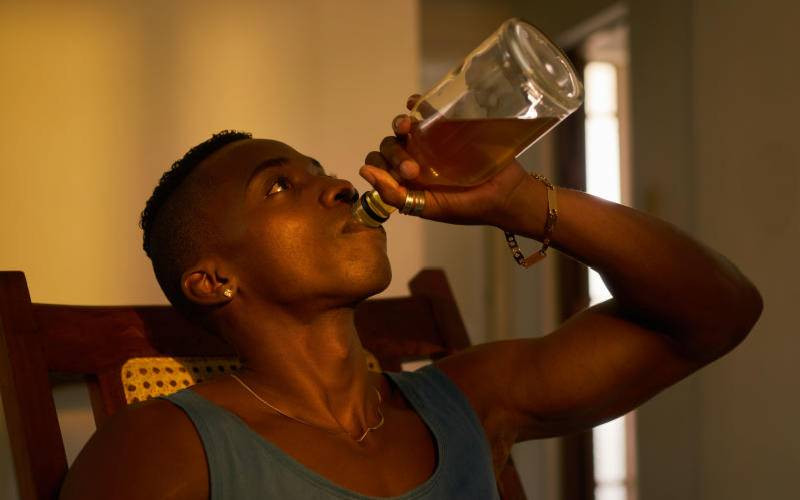
Sorry to be a buzz-kill, but that glass of wine or one bottle of beer every evening is not improving your health.
After years of confusing and sometimes contradictory study findings (too much alcohol is bad for you, yes, but a little bit is beneficial), the truth is becoming clearer: Even tiny amounts of alcohol can have health consequences.
Latest data by NACADA revealed that close to 14 per cent of the population is reported to have alcohol use disorder. Further, one in every eight people aged 15 - 65 takes alcohol. In Nairobi county alone, one in every five people is an alcoholic.
Recent research has found as little as less than one alcoholic drink a day heightens the risk of early death by acute accidents, cancer and cardiovascular disorders.
The research also revealed that a drink a day increases systolic blood pressure - the top number in a blood pressure reading - even in men and women with no existing hypertension.
"We found no beneficial effects in adults who drank a low level of alcohol compared to those who did not drink alcohol," said senior study author Dr Marco Vinceti, a professor of epidemiology and public health at the University of Modena and Reggio Emilia in Italy, in a statement.
The study, published last Monday in the journal Hypertension, found that systolic blood pressure continued to rise over the years, even in men and women who drank little each day. Small amounts of alcohol also raised the diastolic blood pressure or lower reading, but mainly in men, according to the study.
"Both systolic and diastolic readings contribute to heart disease risk and go hand in hand, but of the two, systolic blood pressure is the most important risk factor in adults," said study co-author Dr Paul Whelton.
The systolic or top reading, which represents the force of blood against artery walls when the heart contracts, is a "major risk factor for cardiovascular disease for adults," Dr Premanand Ponoth, a cardiologist at the Karen Hospital, explains. The lower diastolic reading measures pressure in the arteries as the heart muscle rests between beats.
Ponoth says a normal systolic reading is generally 120 mm Hg or below but tends to rise as blood vessels weaken and narrow with age. A normal diastolic reading is below 80 mm Hg but begins to decline with age as arteries lose their elasticity and stiffen, sometimes leading to an increase in pulse rate.
"Alcohol is not the sole driver of increases in blood pressure, but it contributes significantly," he says.
"The concept that too much alcohol raises blood pressure has been around for a long time," said Ponoth. "However, facts are facts, and the review has found low levels of alcohol impact blood pressure. This means there may not be any safe amount of alcohol to consume."
For those who drink, Ponoth advises trying to minimize it and do their best to maintain healthy behaviours that help the heart, such as exercise, healthy eating and stress reduction.

